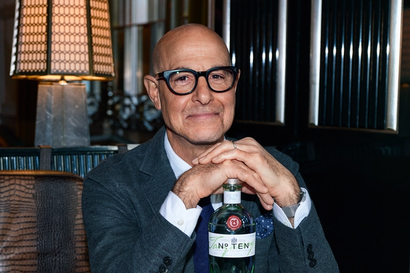Tom Broughton, it is fair to say, has something of an eye for business. The founder of Cubitts – an emerging new challenger in Britain’s bustling specs and sunglasses market – opened his first shop in King’s Cross in 2012. He is now the proud proprietor of five eye-popping boutiques across London, including a chichi atelier in Jermyn Street, not to mention a lucrative online shop.
Cubitts, he says, is about bringing experience back to eyewear. “We’re about being decent and honest with our customers,” he says, “with fair pricing, and never up-selling to turn a quick buck. We treat a patient for life, not just an eye test”.
We sat down with the 37-year old, from Leicester, to pick his brains on how to keep one’s sights set firmly on success.
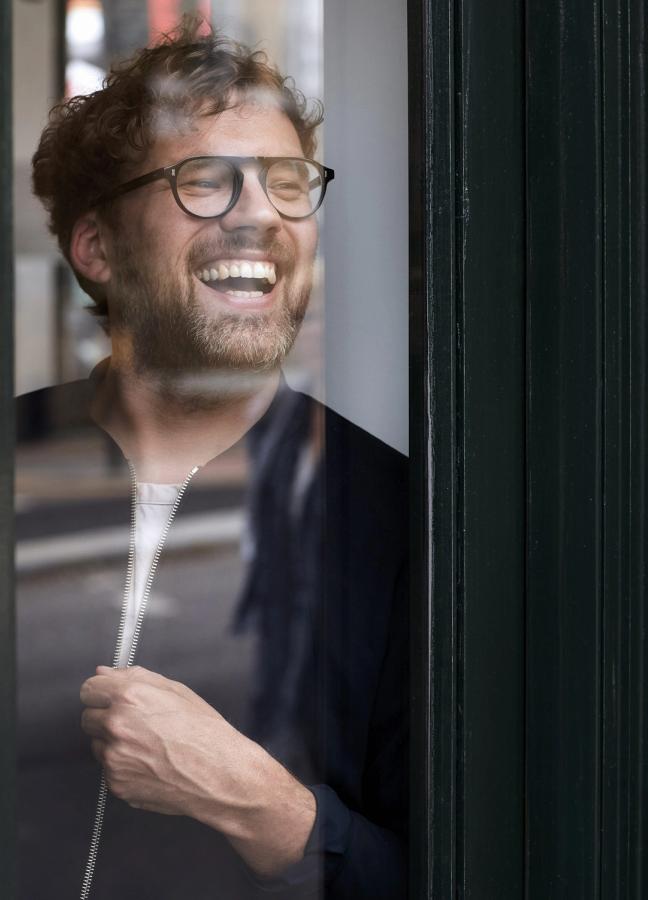
The holy trinity of opportunity
I’ve always had a very emotional relationship with glasses, and I’m immensely passionate about them. But there are three reasons why I launched Cubitts. First, they are ubiquitous: about 69% of all people wear them, which is more than watches.
Second, because they’re something people need, they have a repurchase cycle. But the biggest driver of all is entering a market where the existing customer experience is shit. I knew I could do better. So, you’ve got a big market, in-built new development purchase cycle and existing poor experience… I’ll call that the Holy Trinity of opportunity.
Make it fun
For many people buying glasses is the equivalent of going to a dentist rather than shopping or doing something you love. I want to change that. We started with the aim to take this amazing three-century legacy that no one knows about, and bring it to the modern age, essentially.
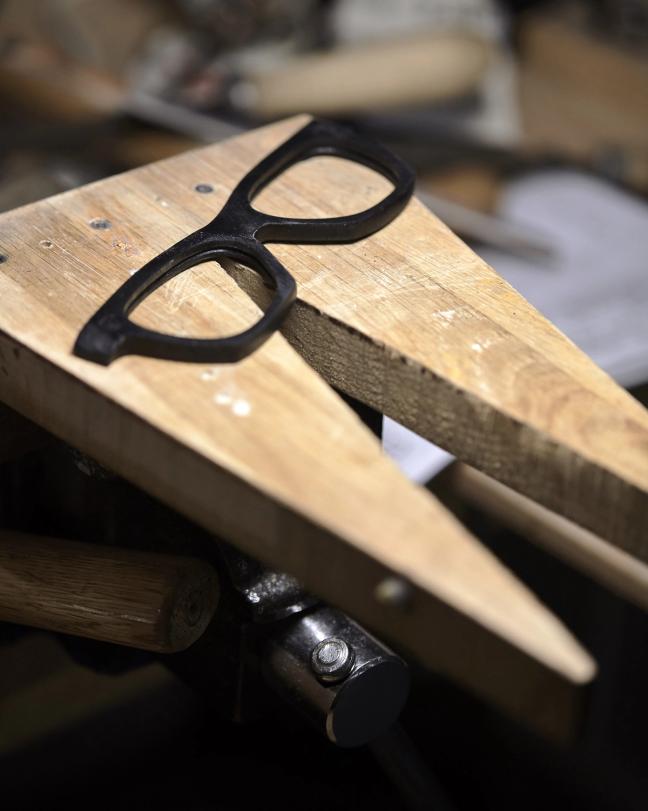
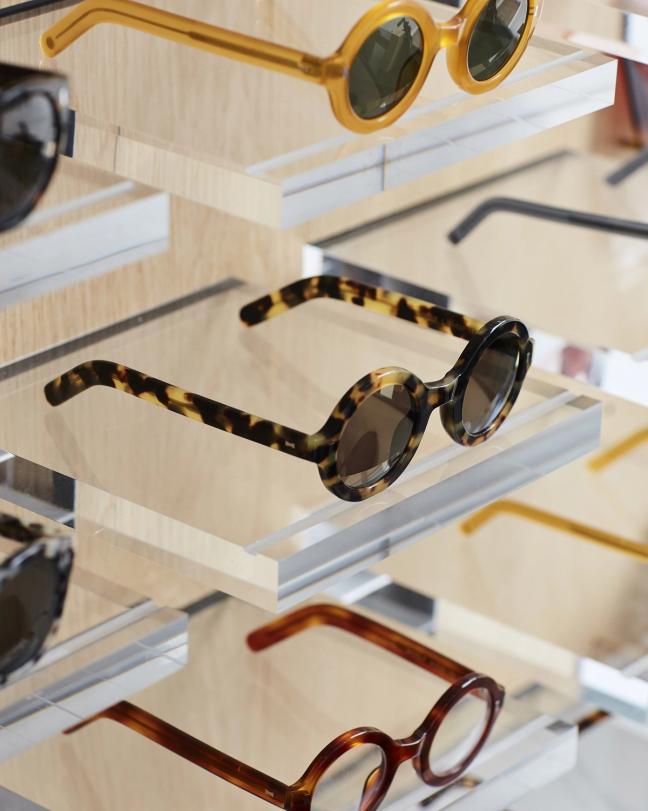
Tradition counts
I named the company Cubitts after the first street I lived on when I first arrived in London. The Cubitt brothers were three Victorian engineers who moved to London, like I did, and revolutionised the building industry, fuelling the industrial revolution. I thought that a really cool principle to base my business on: to take a very old industry and shake it up, while staying true to the quality and experience of a long tradition.
Stay honest
I was never worried about taking on the big, established brands like [names redacted to keep the lawyers happy]. Like many big industries, because glasses are a high-value product, there is a massive incentive to rip people off, bamboozle them and give them a bunch of shit.
"I was never worried about taking on the big, established brands..."
You see it all the time. In some ways, it has many of the same characteristics of buying a mattress or a bed. You go down to [names large bed brand] in Brentford retail park or whatever, and then someone will try to bamboozle with all this bullshit about how springy it is or how great memory foam is or whatever. Before you know it, you’ve forked out £700 and still have no idea if you got a good deal or not.
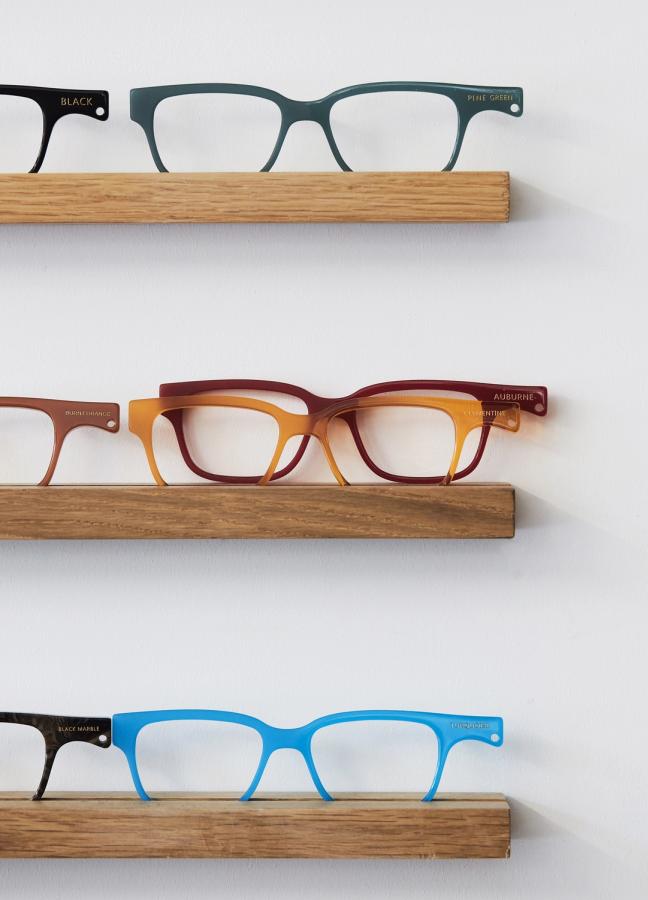
How much does a mattress cost? I don’t know. It could be £100 or it could be £1000. People just don’t know, and I think in industries like that, brands can be an incredibly important signifier. So now, thanks to the internet and smartphones, a new brand can have a way to get straight to the consumer without having to go to traditional distribution model. So, the barriers of entry are much lower.
Boys do make passes at girls who wear glasses
There used to be a saying that went, “Boys seldom make passes at girls who wear glasses.” Well, change is afoot. They do, and vice versa. Eyewear has had a rebirth in recent years, after years of stagnation thanks to the likes of Luxottica, SpecSavers and Vision Express, which produce dozens of brands that, to me, are essentially a very similar product with a different stamp on the frame.
Eyewear has got considerably more conservative since it emerged as a fashion accessory in the 60s. But people are beginning to want to express themselves through their glasses again, and I hope that’s where we can help. I don’t think we would have worked ten years ago.
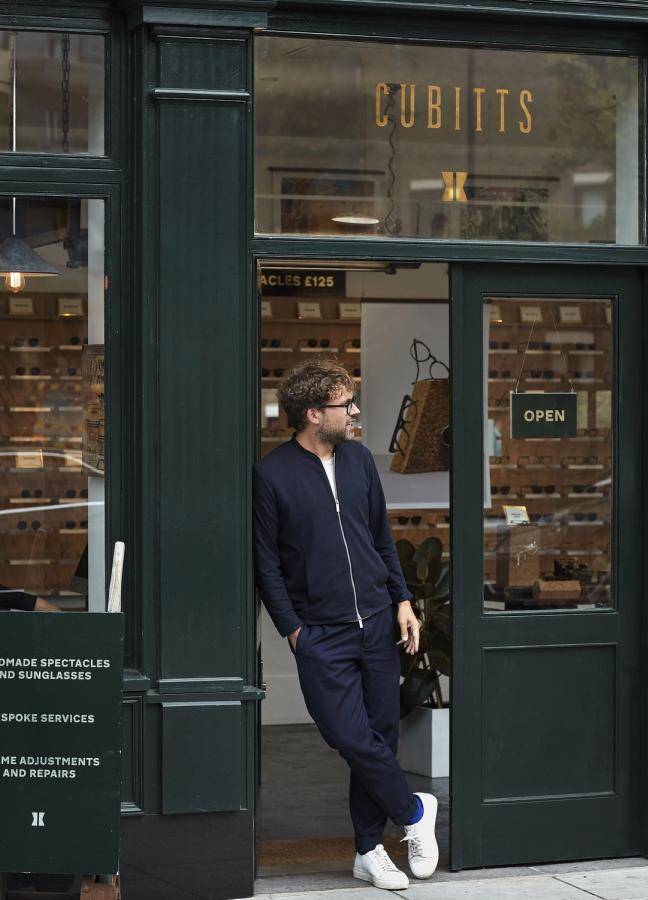
Care, care, care
My basic secret to a good business is just do something you really care about. I know it’s a trite thing to say but it just gets you so far and if you care. Because then it’s not work.
To get investment, have a plan
I spent ten years in corporate-y jobs saving money to launch Cubitts, and I went for it in 2012. We ran out of money after three months. So, at that point we started looking for an investor. I probably pitched to 30 people who all said no – they just didn’t rate the concept.
We really struggled to get investment for a long time. I now realise I was managing the whole thing badly. Nothing was time-bound. I didn’t create any kind of competition. Looking back, what I should have said is, “Right, this is my seed investment round, this is how much I’m raising. Now you’ve got two fucking weeks to sort this out. And that’s it. You’re going to go with the best bidder.”
Instead, I was more like, “I kind of want this money but, I don’t know when I want it.” And they weren’t interested.
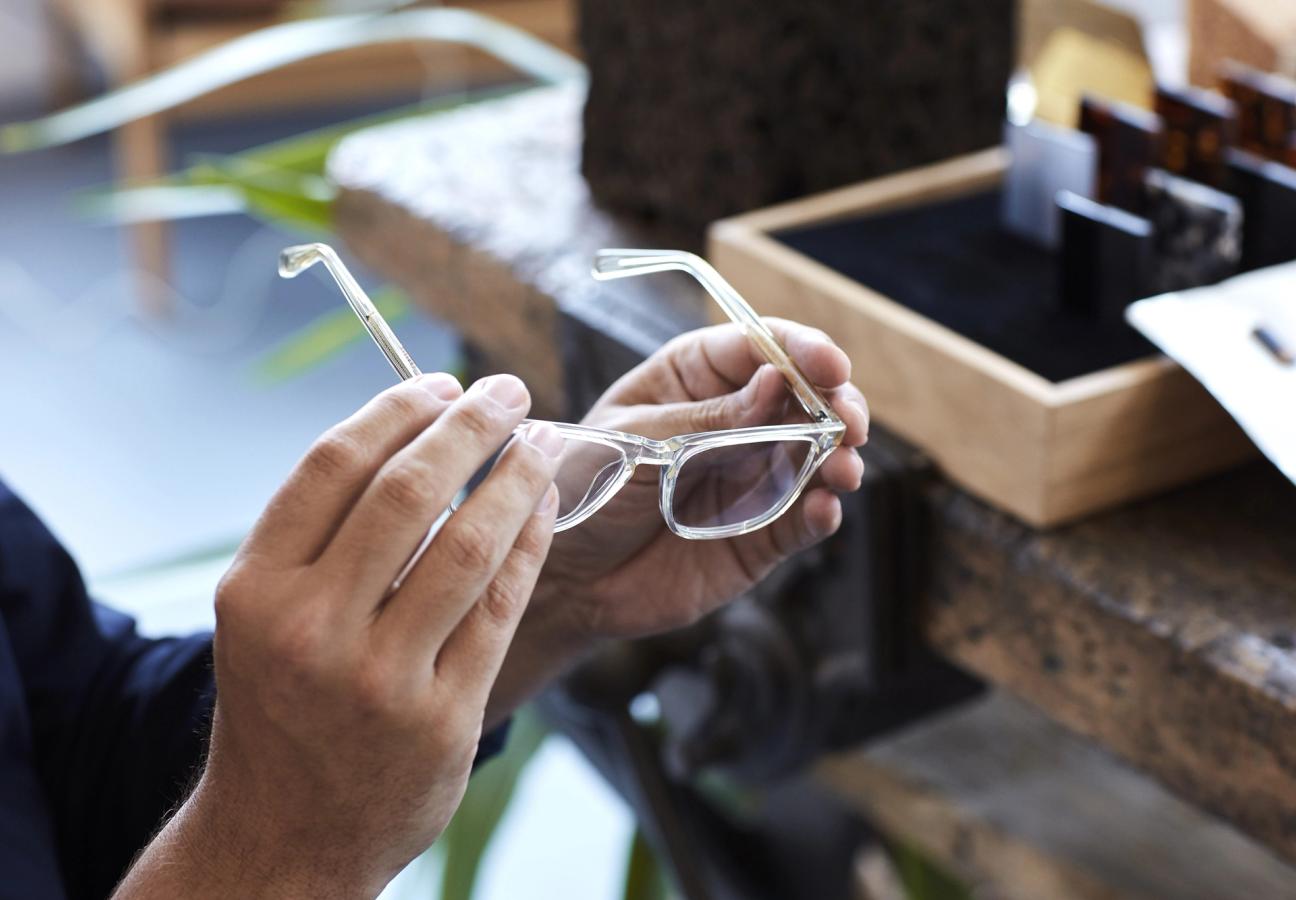
Persevere, persevere, persevere
We started online but I knew we needed a site as well. Our break came when we went into a menswear site called Album. That was transformative for us. We went from selling one frame a day to four frames a day. But also, it’s how we got introduced to the investor who ended up investing. He was a customer.
And that exposed us to a whole bunch of other customers who aren’t going to just go on to the Internet and type “hipster glasses King’s Cross”. And since then we’ve been completely self-financed. That was the biggest lesson: persevere. It will come if you stick at it and believe.
Bricks and mortar isn’t dead
There’s an idea that only online businesses can flourish in today’s world. I think that’s bullshit. You need both. For starters, a bricks and mortar retail location is better than any advertising; it’s a three dimensional advert for an immersive experience for the brand where you can touch and feel everything. People still seem to really like the experience of physically going shopping and spending stuff.
"A bricks and mortar retail location is better than any advertising..."
It’s just WHAT they are buying that’s changed. They are not visiting, for example, [names large chain store] because, what the fuck is it? Or [names another large chain store]? There are cons to bricks and mortar, of course. People are expensive, for example. Your margins are very fine and it’s very localised. But then, online is flatter, you’ve got to work much harder to make people buy stuff. This is why online sales are always so offer-driven. It’s better to have both.
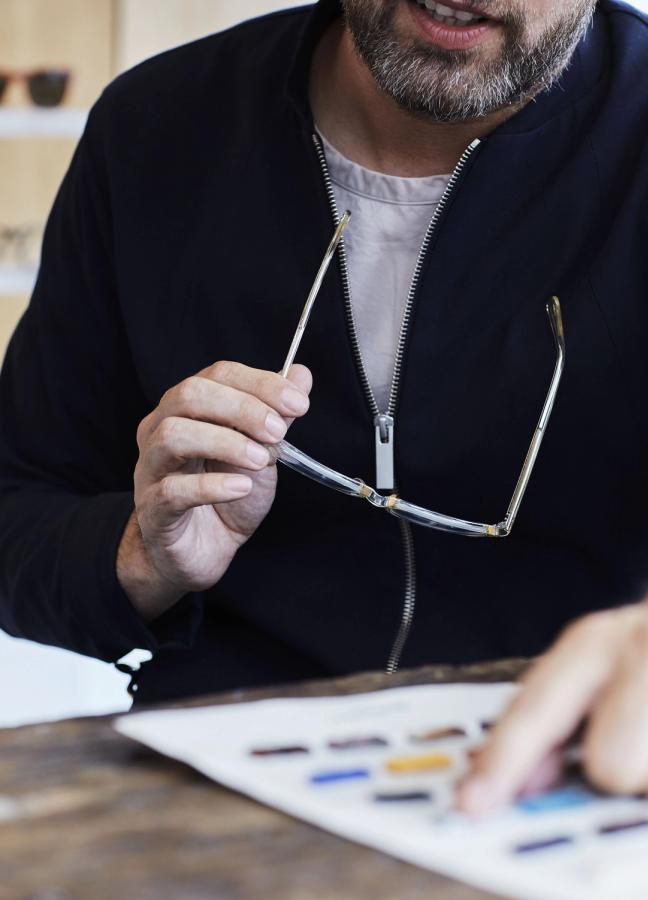
Special offers are a slippery slope
We don’t do 2-4-1 offers, or discounts or anything like that. It depreciates the core product. I think, if you start doing deals, that creates short-termism which has a long-term negative impact on the brand. Obviously we have vague sales targets – we want to keep growing – but the real value is creating a brand people care about. The financial part of a transaction is a tiny part of it. It’s the non-financial stuff that matters most – how happy you are with a product, the experience, how cool your friends think you are.
So, for instance, last Black Friday, rather than doing “10% off if you buy now” kind of thing, we did a Black Death Friday, where we gave away glasses cloths with illustrations that depict the death and destruction of capitalism. Customers loved it.
Cool, young people aren’t necessarily the best market
The median age of our customer is 38. The youngest is 16 and the oldest is 92. I’ve jokingly referred to us as a hipster brand before, but I’m actively trying and move away from that. What does that mean anyway? The funny thing about eyewear, is that the older you get the more likely you are to need it. So, going after youth is a fool’s errand. Youth is both the smallest part of the market, and the most competitive.
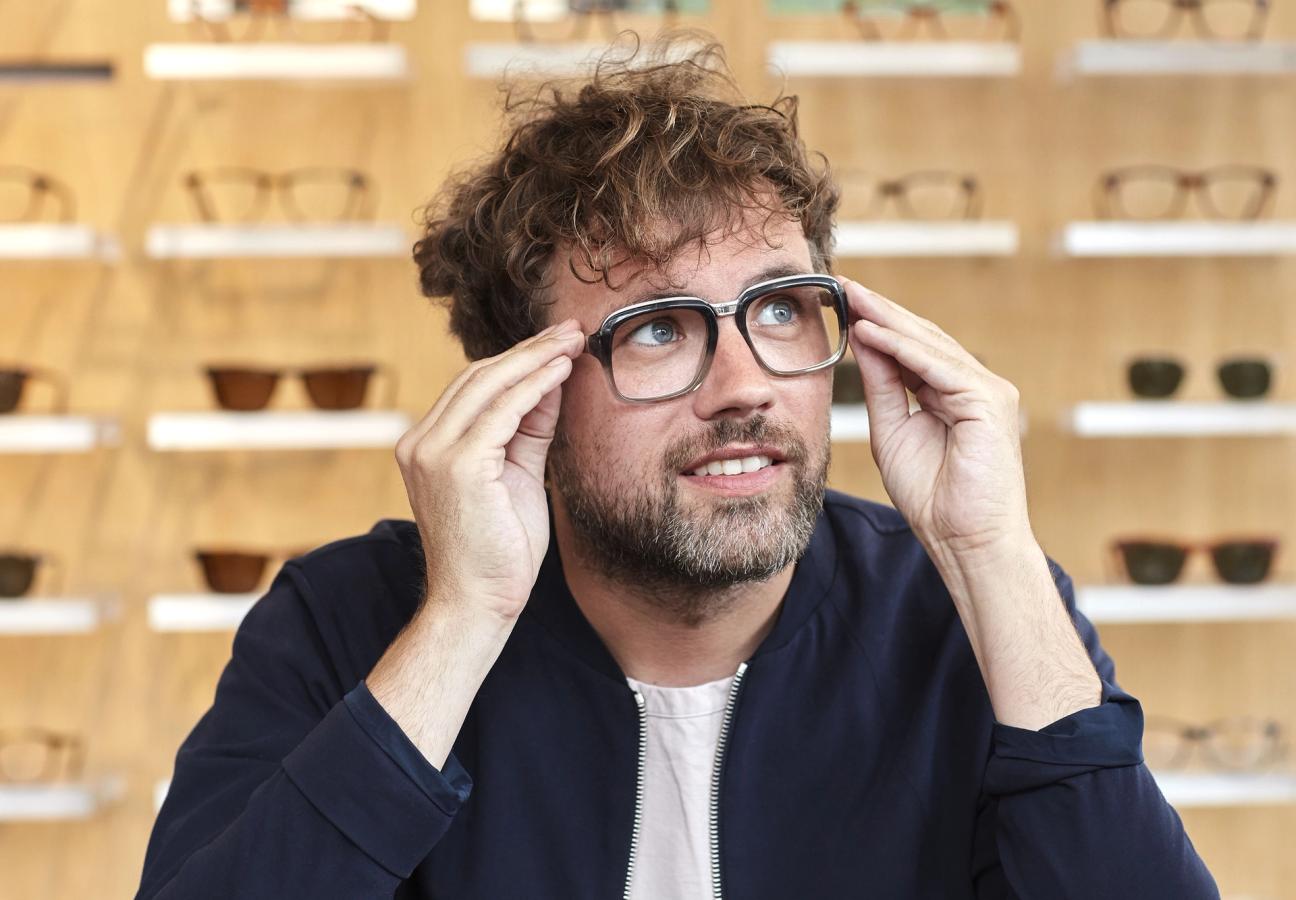
Careful who you hire
Making mistakes are part of business, it’s what you learn from them that counts. My biggest mistake? Hiring people who aren’t a cultural fit. We recently hired a person who had a really strong CV, but just had the wrong personality and it was an absolute disaster. So I’m more careful in my interviewing process now.
For example, one of the questions I like to ask people who apply for a more quantitative role is: what is 2.5 squared? It’s not because I expect them to get the answer straight away; I want to see how they cope with the question. The savants, the too intelligent people, just give the answer. That’s fine. The bad people usually panic and basically refuse to answer the question. Then, in the middle, they try to work it out. They usually get it wrong, but that doesn’t matter. I’ll help them break it down. The fact that they stay calm and give it a go is what counts. That says a lot about a person’s character.
And those are the types of people I like to hire – the ones who take information and learn from it. If someone said to me five years ago, how do you run a specs company? I’d be like, I don’t have a fucking clue. But if you break that down, work slowly through each challenge individually, it begins to come together. By the way, the answer is 6.25.
What people say is important to them is rarely what’s important to them
I learned this reading books like Predictably Irrational by Dan Arieli and Thinking Fast And Slow by Daniel Kahneman. It’s great to help you understand how people think, and that’s in a very irrational and weird way. In eyewear, for example, people will tell you it’s all about getting the right price for what you’re buying.
"Making mistakes are part of business, it’s what you learn from them that counts..."
But in fact, it’s the soft, woolly stuff people like, such as what someone says to you when you walk into a store; how they package it; whether they look you in the eye when they’re talking to you; what they say to you when you leave; if they walk to the door with your little bag; or if they email you afterwards. Basically, people want to be treated like people. This is what we focus on at Cubitts, and the response has been fantastic.
Want more interviews? Check out our latest cover interview with the iconic Samuel L Jackson…

Become a Gentleman’s Journal Member?
Like the Gentleman’s Journal? Why not join the Clubhouse, a special kind of private club where members receive offers and experiences from hand-picked, premium brands. You will also receive invites to exclusive events, the quarterly print magazine delivered directly to your door and your own membership card.


